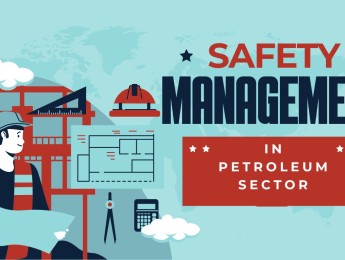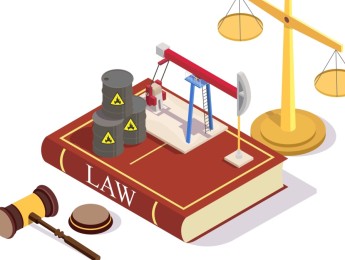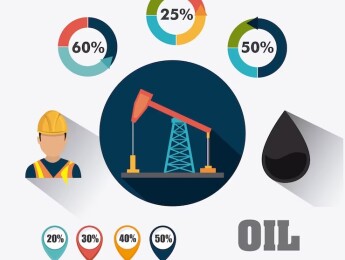The oil and gas industry is a large, global player and to maintain a competitive edge, it’s important to understand the structures and development involved in financial modelling.
Finance professionals in the oil and gas sector will need to utilise core concepts and monitor the market's progress and productivity to make sound financial decisions. Analysing key data sets and making comparisons with competitor organisations is key to designing accurate financial models that take current data and trends into account while forecasting for the future.
Strict risk assessments should also accompany your future predictions and assumptions to make comprehensive decisions on the most sensible financial plan, which avoids the potential for downturns and profit losses.
In this hugely competitive industry you will need to select and develop the appropriate statements and systems to support your financial schedules and create a professional financial model fit to withstand the future in the high-performing energy sector.
Upon completion of this course, participants will be able to:
- Develop a structured quantitative analysis of your current financial position.
- Assess the most relevant tools and systems to help make sound financial decisions.
- Apply financial modelling to the energy sector.
- Create advanced financial models that take risks into account.
- Accurately assess the potential risks of each decision.
- Create investment models and work with beneficial partner organisations.
- Negotiate positive deals with investors and partners.
- Use business statistics to improve your overall operation.
- Apply appraisal techniques to your financial plan and open up discounted rate opportunities.
This course is designed for anyone responsible for making large financial decisions within the gas and oil industry. It would be most beneficial for:
- Chief Financial Officers
- Business Owners
- Data Analysts
- Investment Bankers
- Risk Assessors
- Corporate Finance Managers
- Business Application Writers
- Account Managers
- Asset Managers
- IT Professionals
This course uses a variety of adult learning techniques to aid full understanding and comprehension. Participants will be presented with the key tools to help them make financial decisions. They will view real-world examples of financial planning models and work together to understand which systems would work for their organisation.
They will work in groups to develop a mock financial plan based on key data and assess the risk areas in moving forward, developing mitigation methods along the way. Finally, the participants will take part in an interactive seminar to understand the key differences in financial planning models when related specifically to the oil and gas industry.
Day 5 of each course is reserved for a Q&A session, which may occur off-site. For 10-day courses, this also applies to day 10
Section 1: Financial Management Systems & Their Uses
- What a financial model means to you.
- Effective budget monitoring and preparation.
- Cash flow recording.
- Management and forecasting for the future.
- Interpreting your data.
- Financial ratios and analysis.
Section 2: Treasury Management & Risks
- Global treasury models and their properties.
- How to structure a pure return portfolio.
- Income portfolio structuring.
- Looking at defensive structure portfolios and when you might need them.
- Financial instruments.
- Financial tools and techniques and when they might be most useful.
Section 3: Selecting the Most Beneficial Financial Model
- Income statement and balance sheet creation and forecasting.
- Drafting your statement of financial position.
- Cash flow models.
- Understanding your budget.
- Sensitive purchasing decision-making.
- Equity and debt models.
- Cost of capital decisions.
- The basics of Excel.
- Payback, ARR, NPV and IRR models using Excel spreadsheets.
- Capital investments.
- Displaying your financial model to partners and investors.
Section 4: Making Decisions Based on Data
- Understanding past trends.
- Where the accurate data comes from.
- Data modelling in financial systems.
- Using trending data to predict the future market.
- Competitor changes and how to track them.
Section 5: Auditing & Risk Mitigation
- Conceptual risk management strategies.
- Market risk identification and management.
- Mitigation techniques for extensive credit risk.
- Liquidity risk and what it means for you.
- Risk assessments in-depth.
- How to utilise risk to make financial decisions.
Section 6: Putting Your Model into Practice
- The financial model selection process.
- How to construct financial models.
- Models and sub-models.
- Linking your plan to your organisation.
- Communicating your next steps.
- Scenario planning.
- Rolling back on potential mistakes.
Upon successful completion of this training course, delegates will be awarded a Holistique Training Certificate of Completion. For those who attend and complete the online training course, a Holistique Training e-Certificate will be provided.
Holistique Training Certificates are accredited by the British Assessment Council (BAC) and The CPD Certification Service (CPD), and are certified under ISO 9001, ISO 21001, and ISO 29993 standards.
CPD credits for this course are granted by our Certificates and will be reflected on the Holistique Training Certificate of Completion. In accordance with the standards of The CPD Certification Service, one CPD credit is awarded per hour of course attendance. A maximum of 50 CPD credits can be claimed for any single course we currently offer.
- Course Code IND01-123
- Course Format Classroom, Online,
- Duration 5 days














